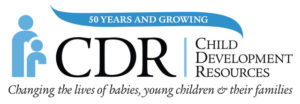
Do You Hear Me? Why Listening is Important
Practice active listening to improve your communication skills and relationships
Communication is the foundation of all relationships, and it involves more than your speaking role in a verbal exchange. When we discuss communication, we often think of our ability to convey our thoughts, feelings, and meanings clearly. However, there’s another critical component of communicating that doesn’t receive as much attention despite its importance: listening.
Listening doesn’t really seem like a skill that needs to be taught or practiced. As long as your natural biological function of hearing is working, you’re listening, right? Well, it’s not always that easy. Although listening seems automatic, it requires more intentional effort than many people realize, and relationships would benefit from focusing more on the listening component of communication.
The art of paying attention
When we ask our children to listen, we expect more than simply hearing; we want them to pay attention to what is being said. The same should be true with your own role in a conversation. This advice may seem like common sense, and your initial reaction would most likely be to claim that you are listening, but if you really evaluated your behavior honestly, there would likely be room for improvement. Good listening isn’t as easy as it seems.
Feeling heard and understood is a basic human desire, and being a good listener makes people feel valued and important. Whether you’re speaking to your child, your romantic partner, your boss, or the people you encounter casually throughout the day, the ability to make others feel like they truly matter is a powerful skill to master. Active listening can help make that happen.
What is active listening?
Active listening involves an intentional effort to focus on the other party of your conversation. Practice active listening by doing the following:
Don’t formulate your response as the other person is talking. You’ll still know what to say when it’s time to say it. Pay close attention to not only what the other person is saying but their body language and emotions, as well. Active listening means you’re not just waiting for your turn to talk; allow the other participant to have their moment in the conversational spotlight.
Acceptance is important. Active listening doesn’t involve judgment or the negotiation of what’s being said. Even if you don’t necessarily agree with the entirety of the message being conveyed, accept that it’s how the other person feels. Don’t interrupt to dispute facts or point out the error in their perspective. Acknowledge how they feel, even if you don’t quite understand it.
Demonstrate that you’re listening. If you find that you’re having trouble focusing, mentally repeat every word they say back to yourself to stay on track. Make sure your own body language indicates interest, lean forward, nod occasionally, ask questions to get additional information, and confirm that you understand by paraphrasing with reflective statements such as, “It sounds like you’re saying ….”
Respond appropriately. People have various reasons for sharing information. Is this something that they need you to know? Are they looking for advice or help? Do they need feedback? Do they just need to vent or express emotions? Try to remember that people aren’t always looking for a solution. If you’re unsure, ask if they’re looking for feedback or if they just needed to talk. If they are looking for your opinion, state your thoughts honestly and respectfully without dismissing whatever they said.
Active listening seems easy on the surface, but as you begin paying attention to your actions during a conversation, you’ll realize that it can be a challenge. The world around us is so busy and distracting that it can be difficult to focus on one thing at a time, and that’s why it’s so important.
The greatest gift you can give another person is your undivided attention. Active listening can lead to a better understanding of the lives, actions, emotions, and motivations of the people you care about, and can contribute to a deeper sense of connection.
The next time your partner or child strikes up a conversation, eliminate other distractions and concentrate on each word. Don’t rush, don’t formulate a response, don’t make judgments, and understand that your role isn’t necessarily to solve every problem. Active listening has a way of slowing the world down and allowing you to focus on what’s really important: the people around you.
The mission of CDR’s Fatherhood program is to empower dads to reach their goals and to be the best parents they can be. Check out our website for free workshops and classes that help fathers with communication, relationships, careers, financial advice, and parenting.
Don't forget to like us on Facebook!
Phone: (757) 345-2832
Address: 210 Packets Court, Williamsburg VA

